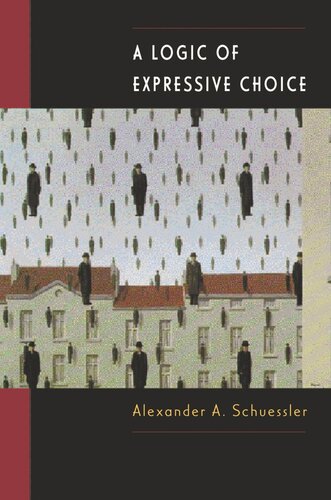

Most ebook files are in PDF format, so you can easily read them using various software such as Foxit Reader or directly on the Google Chrome browser.
Some ebook files are released by publishers in other formats such as .awz, .mobi, .epub, .fb2, etc. You may need to install specific software to read these formats on mobile/PC, such as Calibre.
Please read the tutorial at this link: https://ebookbell.com/faq
We offer FREE conversion to the popular formats you request; however, this may take some time. Therefore, right after payment, please email us, and we will try to provide the service as quickly as possible.
For some exceptional file formats or broken links (if any), please refrain from opening any disputes. Instead, email us first, and we will try to assist within a maximum of 6 hours.
EbookBell Team

4.3
28 reviewsAlexander Schuessler has done what many deemed impossible: he has wedded rational choice theory and the concerns of social theory and anthropology to explain why people vote. The "paradox of participation"--why individuals cast ballots when they have virtually no effect on electoral outcomes--has long puzzled social scientists. And it has particularly troubled rational choice theorists, who like to describe political activity in terms of incentives. Schuessler's ingenious solution is a "logic of expressive choice." He argues in incentive-based (or "economic") terms that individuals vote not because of how they believe their vote matters in the final tally but rather to express their preferences, allegiances, and thus themselves.
Through a comparative history of marketing and campaigning, Schuessler generates a "jukebox model" of participation and shows that expressive choice has become a target for those eliciting mass participation and public support. Political advisers, for example, have learned to target voters' desire to express--to themselves and to others--who they are. Candidates, using tactics such as claiming popularity, invoking lifestyle, using ambiguous campaign themes, and shielding supporters from one another can get out their vote even when it is clear that an election is already lost or won.
This important work, the first of its kind, will appeal to anyone seeking to decipher voter choice and turnout, social movements, political identification, collective action, and consumer behavior, including scholars, graduate students, and upper-level undergraduates in political science, economics, sociology, anthropology, and marketing. It will contribute greatly to our understanding and prediction of democratic participation patterns and their consequences.